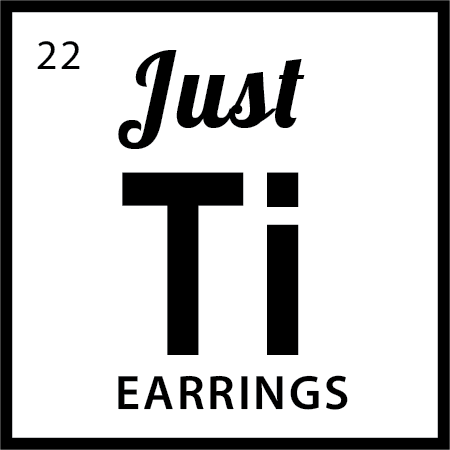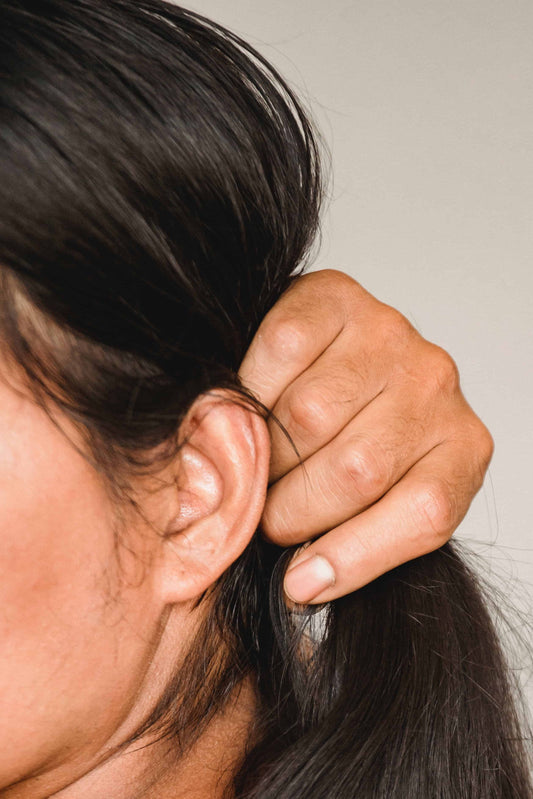Is Gold or Titanium More Hypoallergenic?
Share
When it comes to earrings or body piercings that can cause allergic reactions to sensitive skin, choosing the right hypoallergenic metals is important. Making this decision can be confusing because there are so many different opinions available. Gold and titanium are two popular hypoallergenic materials and reputable jewellers will probably suggest these jewelry metals. But which one is better for sensitive skin? Or is it more complicated than that? Gold is a precious metal while titanium is not. Gold is also a classic favourite for many people, while titanium is better known for its medical uses. A quick look at the properties of gold and titanium can help you decide.
Lots of people have the age-old idea that gold is the safest and only material they can wear. The quick answer to gold being safer for body piercings is: not always. Here are some points to consider about gold.
We must evaluate the alloy metals of the gold. This can be understood easier when we use the weight ratio of the gold or 10k, 14k, 18K, 24k. Pure gold itself is a hypoallergenic material and is unlikely to cause an allergic reaction in most people. However most gold earrings contain other metals or alloys such as nickel, silver and copper. Nickel is one of the most common metals that causes allergic reactions. We can only say that 24k gold is completely hypoallergenic, as lower weight ratios contain alloys or other elements that could cause allergies.
The purity of gold for jewelry metals is shown in the karat rating:

Is the gold jewelry just gold plating? Nickel, an added element to gold plating, can leach out through the plating.
Yellow gold can consist of differing quantities of gold, copper and silver. Yellow gold of 18k consists of 75% pure gold, 15% copper, 10% silver and often some nickel to add shine.
White gold is manufactured by alloying other metals with yellow gold. Most commercial alloys are zinc, silver, gold and nickel, however platinum is also used. White gold is available only up to 21 karats so as to retain the white color.
Rose gold is an alloy made from a combination of pure gold and copper. Rose gold is not hypoallergenic, so if you're sensitive to copper, rose gold may not be right for you. Also, copper is more prone to oxidation than other alloy metals. Copper and brass both turn skin green.
What about titanium? Titanium is biocompatible. It's widely used in medical implants and has hypoallergenic properties. Its alloys are aluminum and vanadium, not nickel. When it comes to making earrings or other jewelry, it’s not as complex as gold. Titanium is an excellent choice for sensitive skin.

Which is more durable?
Gold is a classic choice for elegance and color and can hold up quite well against everyday wear, though the resistance to scratches largely depends on the karat. Higher karat gold, is more luxurious and vibrant, but it is also softer. Pure gold is very soft and malleable and therefore it is not ideal for making jewelry, especially earrings.
Titanium is a natural element and extremely hard. It has 3 times the strength of steel but 40% less weight. Titanium grade 1 is the softest and most malleable. This grade is extremely good for earrings, the wire can be easily formed. Titanium has a tensile strength of around 434 MPa, compared to that of gold which is between 100 and 200 MPa depending on purity.
Which is more affordable?
Price is an important consideration when deciding between gold and titanium. Gold is often viewed as a desirable metal or upgrade jewelry by many piercers. Titanium is not classified as a precious metal and therefore has less value than gold. The prices for titanium and gold can vary significantly due to market conditions. For example, in August 2023, titanium was around $5 to $6 per ounce and gold was approximately $1,900 to $2,000 per ounce.
Titanium offers a more budget-friendly option without compromising on quality. Gold offers a classic and luxurious look. In the end, it’s personal preference that wins when choosing between gold and titanium.
Gold vs Titanium - Which is better for nickel allergy sufferers?
Nickel is known to be a very reactive metal and cause allergic reactions. In fact, it is one of the most common causes of contact allergies. As noted above, nickel is an alloy often found in gold except in weight ratios between 18K and 24K gold. Titanium does not contain any nickel or other allergenic properties. It is a metal used in medical implants. So, titanium and 18K to 24K gold are all safe for allergy sufferers.

Conclusion
In this investigation into the properties of gold and titanium, we find that both gold and titanium can be hypoallergenic metals. Gold is a popular choice with a wide range of prices. However, gold can be complex and therefore a reputable jeweler can help you to choose gold that will be less likely to cause an allergic reaction. Titanium as a jewelry metal is gaining popularity. It is very affordable and guaranteed not to contain any alloy metals that cause allergies.

